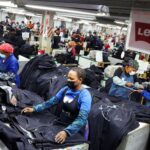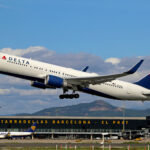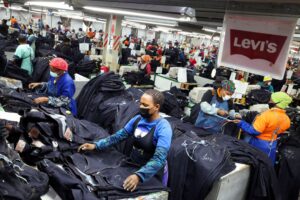
Bloomberg
Huarong’s Fate May Rest With Xi Confidant Who Loathes Bailouts
(Bloomberg) — The future of Huarong Asset Management Co., a troubled Chinese financial conglomerate, may be determined by a man who believes that allowing more state-owned companies to default is just what the country needs: Vice Premier Liu He.While Huarong insists it’s healthy enough to repay its debts, markets have been pricing in the risk of default since the company missed a March 31 deadline to report 2020 earnings. Another portent: In January, Huarong’s former chairman, Lai Xiaomin, was executed on charges that he’d accumulated a fortune in bribes during his years at the helm.Under Lai, the company moved beyond its original mandate of helping banks dispose of bad debt, raising billions of dollars from offshore bondholders and expanding into everything from trust companies to securities trading and illiquid investments. At last count, its balance sheet listed 1.73 trillion yuan ($267 billion) in assets.With a range of scenarios still possible — including a state-backed cash injection or a lengthy restructuring that involves losses for bondholders — analysts, economists, and investors see President Xi Jinping’s economy czar as playing a critical role. “In the end, Liu He will be the person to make the final decision,” says Chen Long, an economist at Beijing-based consulting firm Plenum. “He doesn’t want to bail out everybody, he doesn’t like moral hazard. And on the other hand, he doesn’t want to trigger a financial crisis.”As he’s amassed power in recent years, Liu has laid out his vision for reshaping China’s more than $50 trillion financial sector by shifting credit away from state-owned enterprises toward nimbler private companies and strategic sectors key to spurring continued economic growth.While he’s yet to speak publicly about Huarong’s fate, Liu’s past comments suggest he believes allowing SOEs to default is a necessary step to force lenders to price risk based on a borrower’s business prospects rather than its Communist Party links. Last summer, while China was still struggling with fallout from the coronavirus pandemic and politicians in the U.S. and Europe were supporting their economies at almost any cost, Liu announced that the task of eliminating weak companies “must be handed over to the market.”In a speech at the end of August, he called for efforts to “resolutely prevent moral hazard”– the idea that government bailouts encourage investors to take excessive risks. Whether that applies to Huarong, which is majority owned by the Ministry of Finance, remains to be seen. Permitting a default of an enterprise that large and closely linked to the central government would go a step beyond what the party has so far been willing to accept.Removing implicit state guarantees is seen by Liu as a pivotal part of “an overhauling of capital markets so they can be made fit for purpose,” says Dinny McMahon, author of China’s Great Wall of Debt. “They don’t properly price risk, they don’t efficiently allocate resources. If China wants to foster growth and innovation, capital markets have to change.”Market ReformsLiu, 69, has known Xi since childhood. Both men are the sons of veteran Communist Party leaders, and they were among the masses of young people dispatched to work in impoverished rural areas during the Cultural Revolution. After studying economics in the U.S., including a graduate stint at Harvard, Liu spearheaded a forum of Chinese economists known for favoring market reforms.He drafted the Xi administration’s signature economic policy document in 2013 that promised a “decisive role” for markets and was the mastermind of a campaign against excessive corporate leverage launched in 2016. He’s widely assumed to be the author of an influential article that appeared in the party’s flagship newspaper the same year warning that a buildup of debt in the economy could “trigger a systemic financial crisis.”“Whether to allow a default for large SOEs is still a political decision,” says Bert Hofman, World Bank director for China until 2019, who now leads the National University of Singapore’s East Asian Institute. Hofman says Beijing’s drive to curb the market power of fintech companies such as Alibaba Group Holding Ltd. and Tencent Holdings Ltd. — a policy push that’s rocked equity markets over the past 12 months — was also in line with the 2013 economic policy blueprint.Trade NegotiatorShortly after ascending to the party’s elite 25-member Politburo in 2017, Liu was appointed chairman of the recently created Financial Stability and Development Committee, which oversees the entire financial sector. There he outranks Guo Shuqing, the top banking regulator, and Yi Gang, the central bank governor. Outside of China, Liu is better known as the chief negotiator in trade talks with the Trump administration and the lead in discussions with the European Union that produced an investment agreement.“He’s incredibly sharp,” says Jamieson Greer, who was the chief of staff at the Office of the U.S. Trade Representative during the trade talks. While prioritizing the party’s interests, Liu shows greater faith in market forces than other Chinese officials, Greer adds.With the coronavirus largely under control within China, Liu has been able to focus on eliminating weaker state-owned companies or forcing them to concentrate on core businesses. Signs of a shake-up came with a wave of defaults by state-linked companies last year. In 2020, SOEs reneged on a record 79.5 billion yuan in local bonds, making up more than half of defaults by Chinese corporations.If Liu does end up being the key decision maker on Huarong, the restructuring of three local banks in 2019 gives clues on how it could be handled. The highest profile of those was Baoshang Bank Co., which received a cash injection to avoid a liquidity crunch even as 6.5 billion yuan of its onshore Tier 2 bonds were written down in full.Huarong has the equivalent of $41.3 billion in bonds outstanding. A state bank recently stepped in to help it pay maturing debt, suggesting officials may be concerned about systemic risk. Bloomberg News also has reported that the central bank is considering a plan for a cash infusion.Such a move wouldn’t mean Liu’s broader campaign is over, though. “Huarong is a special case,” says Wei He, an economist at Gavekal Dragonomics, a China-focused consulting firm. “There will be more defaults in the near future.”He says the next test of Liu’s resolve could be a public default by one of the financing vehicles used by local governments to circumvent Beijing’s mandated limits on borrowing to fund infrastructure projects. “There are tensions between local government interests and central government interests,” he says. “No local government wants to be the first to default.”Liu will reach the conventional retirement age for senior party officials before an ordained leadership reshuffle next year, and it’s unclear if he’ll stay on. With Xi looking to remain in power after scrapping term limits for the presidency, Liu could continue to wield influence. Until then, and likely beyond, he appears set to keep pushing his reforms as long as he’s confident he can -without sparking the crisis he’s maneuvering to forestall.“I think of it as kind of like a sculptor slowly chiseling away to introduce more accountability into the system,” says Trey McCarver, co-founder of Trivium, a China-focused consulting firm. “That’s the way to read the rise in bond defaults.”For more articles like this, please visit us at bloomberg.comSubscribe now to stay ahead with the most trusted business news source.©2021 Bloomberg L.P.







